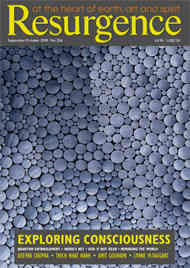Socialist and defender of homosexual rights Edward Carpenter was a man of many causes. Over the course of his long life from 1844 to 1929 he defended women’s emancipation, nudism, animal rights and prison reform. Carpenter mixed with anarchists, religious enthusiasts, psychologists, trade unionists, and arts and crafts designers, many of whom trooped out to visit Millthorpe, near Sheffield, where he had settled as a market gardener in the early 1880s. Sheffield’s blast furnaces would turn him into a pioneer campaigner against pollution and an advocate of a simple life close to Nature.
When he left his clerical fellowship in Cambridge to teach in the adult education movement in the North of England, he was appalled at the soot and dirt which fell from the skies when it rained. During the 1880s, Smoke Abatement groups began to appear, agitating for action. Carpenter took up the issue in 1889 when the newly formed socialist groups were beginning to recognise that the much sought-after ‘Revolution’ might take a little longer than they had originally envisaged. He lectured on smoke abatement in Sheffield, Bradford, Hull, York and Manchester.
His manuscript notes, preserved in the Carpenter Collection in Sheffield Archives, show that he did careful preparation. He went through the Minutes on Evidence put together for the Smoke Nuisance Abatement Bill of 1887, studied the history of legislation since medieval times, perused reports on health and damage to stone buildings and researched the latest mechanical stokers which reduced smoke. Yet Carpenter’s work to clean up the city proved far more difficult than he had imagined.
His yearning for unpolluted air arose from his conviction that it was necessary to bring together what he described as “the Nature movement” and the movement against capitalist competition. Already in the late 1880s he was prepared to question the mantras of progress, science and consumption. The depression of the 1870s and 1880s stimulated a questioning of economic laws. Carpenter wondered whether it was more useful for him “to just try and keep at least one little spot of Earth clean: actually to try and produce clean and unadulterated food, to encourage honest work, to cultivate decent and healthful conditions for the workers, and useful products for the public”. In this respect, he was clearly a visionary.
Carpenter’s simple life stressed local produce, vegetarianism and less clutter. There were to be tiles or stone floors on the ground floor, painted wood upstairs, carpets that could be easily beaten. It was out with the chintz and in with woolly coats which could be recycled as rugs and end their life in the dog basket. As for feet, they were no longer to be encased in coffins but allowed to stretch out in sandals.
Over the years, Carpenter became somewhat exasperated to be questioned by devotees about why he had an ornament on the mantelpiece and remarked rather snifflily that simplification was only the first letter in the “Art of Life”. He continued to insist, however, that socialism “must clear our skies and purify our streams, and secure for us great tracts of public lands, on which the life of the people may develop.” As well as changing the conditions of daily life and work, Carpenter thought socialism should be about “loving companionship and mutual helpfulness” and a sense of the sacredness of Nature. Sadly history took other turns. •
Edward Carpenter: A Life of Liberty and Love by Sheila Rowbotham is published by Verso Books, ISBN 9781844672950.








